Cannes Recap: The Independent’s Film Rankings
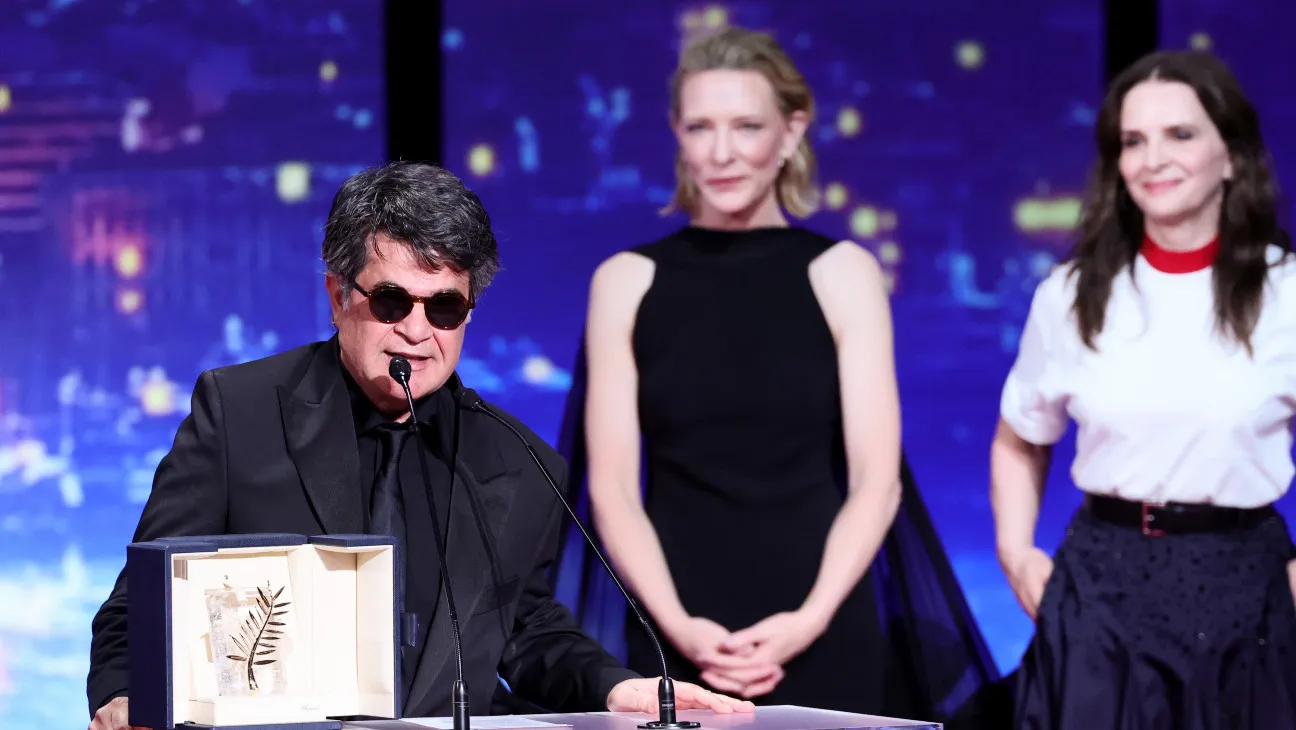
Unfortunately, our time at the Cannes Film Festival has come to a speedy close. Our four reporters at the festival were able to watch films in every category, including 8 of the 22 films competing for the Palme d’Or, Cannes’ highest award, which recognizes the best feature film.
Here’s our ranking of the in-competition films, and each of our reporters’ rankings of all the films they saw individually:
The Independent’s in-competition films ranking:
- “Nouvelle Vague (The New Wave)” by Richard Linklater
Why? We think “Nouvelle Vague” steps out of Cannes as one of the most earnest and poised films of the festival. With impeccable direction from Linklater and several star-born performances from a largely unknown cast, “Nouvelle Vague” is a remarkable addition to the film biopic canon. It is, in any avenue of the film’s production, infallible.
- “Eddington” by Ari Aster
- “Sirât” by Oliver Laxe
- “Sound of Falling” by Mascha Schlinski
- “Die My Love” by Lynne Ramsay
- “La Petite Dernière (The Little Sister)” by Hafsia Herzi
- “Dossier 137 (Case 137)” by Dominik Moll
- “The Phoenician Scheme” by Wes Anderson
Personal Ratings:
Editor-in-Chief Hannah Brueske’s ratings:
- “My Mom Jayne” by Mariska Hargitay
What can I say, I love a documentary (journalists are great filmmakers, too!) One of my hopes in attending Cannes was being able to see films that genuinely move me, and connect me to my humanity. “My Mom Jayne” did just that. Mariska Hargitay left it all out on the table. Her unwavering commitment to vulnerability in sharing her experience of grief, anger and familial bonds — themes that touch every person’s life — made her very unique story hauntingly universal. I am so glad I had the privilege of watching the film in the presence of Hargitay, her family and some of the crew.
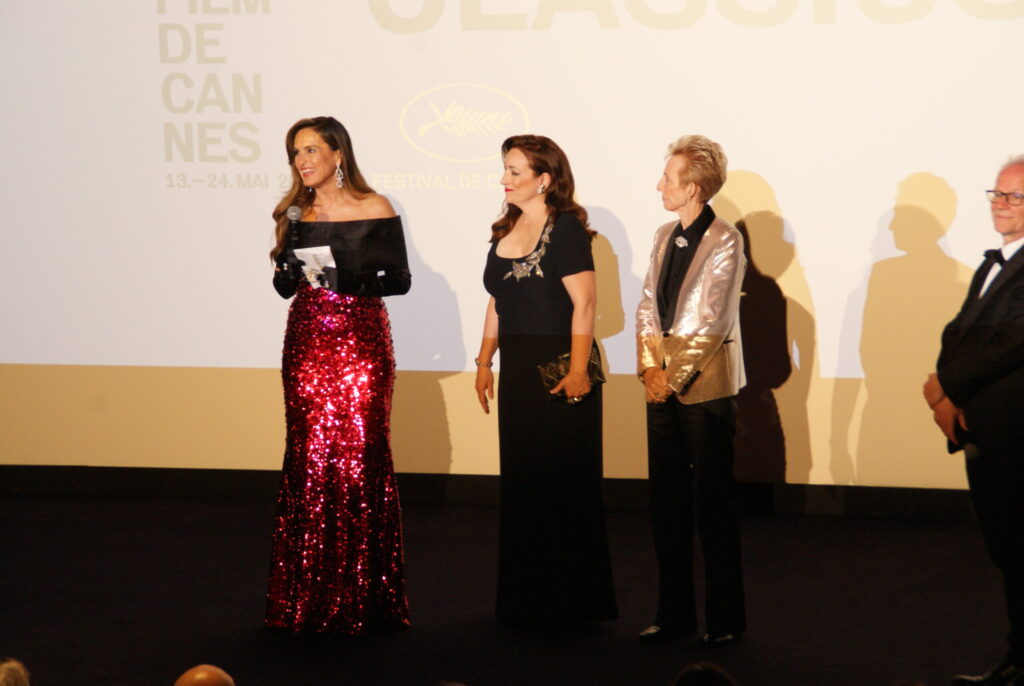
- “Eddington” by Ari Aster
The most shocking thing about “Eddington” might just be my enthusiasm for it. And it was not momentary either — when asked about the films I saw at Cannes, this is the one I find myself bringing up first. It’s deliciously controversial, for all the right reasons. The divisive reactions the film has garnered at Cannes strengthens the message of “Eddington,” in which Aster accurately captures the absurdity of our new “normalcy” — from social isolation, online conspiracy groups and fractured activist movements — all things that continue to divide the United States. I can’t wait to see how a larger audience receives this film once it hits theaters in July.
- “La Petite Dernière (The Little Sister)” by Hafsia Herzi
Teenage angst and adulthood anxiety are in full bloom in Herzi’s newest feature film “The Little Sister.” Now that, at 21 years old, I am somewhat removed from my teenage years for the first time in my life but still grappling with how to navigate adulthood, it feels like this film was made for me. While the start of adulthood can offer an exciting rush of freedom and newfound personhood, it is also the death of childhood and innocence in many ways. This film is an ode to just this, and does the unique feeling justice.
- “Urchin” by Harris Dickinson
The banality of life is felt by the time “Urchin” comes to a close. Dissatisfying in the right ways, Mike’s (Frank Dillane) story serves as a reminder that sometimes, even though we give it our all, life still does not go our way — often without justification. We don’t always reach the miracle; We don’t always make it out. I left the film wanting more — as I so often do in life.
- “La Misteriosa Mirada del Flamenco (The Mysterious Gaze of the Flamingo)” by Diego Céspedes
If I had seen this film with English subtitles it would have probably ranked higher. But even without the language, “Flamingo” is beautiful and dreamlike in its experimental sequences, which point out the ridiculous fabrication of transphobic narratives related to the AIDS crisis in the ’80s. I plan on rewatching it as soon as I can.
- “The Phoenician Scheme” by Wes Anderson
For those who love Wes Anderson, “The Phoenician Scheme” will not disappoint. I would have liked to see some revitalization to the Andersonian formula, which is routinely and effectively, though at this point (dare I say) somewhat lazily, used in the director’s filmography.
- “Arco” by Ugo Bienvenu
Though sweet in its animation, the messaging of “Arco” left me rather confused. Do we really need another animated machine-sympathetic film? Even the big emotional reveal at the end of the story fell flat, unsupported due to the lack of previous world building.
- “La Ola” Sebastián Lelio
The best part about “La Ola” was its music and choreography, which were catchy and memorable. Near the end of the film which follows Julia, a music student in Chile as she becomes the face of the feminist movement after speaking out about the sexual harassment she had faced by her friend, the cast breaks the fourth wall, addressing the film’s real director and crew angrily. Still in character, they point out that a man is not the right person to direct this film. This felt like an attempt to get ahead of potential criticism, but felt awkward and completely broke the style that was kept up for the vast majority of the film.
- “The Chronology of Water” by Kristen Stewart
Forgive me, Kristen! Perhaps the reason this film scored so low for me is that it was one of my most anticipated films. And though the attempt to be both dark and quirky (in an undeniably Kristen Stewart way) is felt, by trying too hard to be “real” and different, it became its own cliche. When the film ended I felt like I needed a shower. Exposed to a new grotesque exchange (or bodily fluid) scene after scene, I quickly became entirely desensitized to and disinterested in the story that was unfolding.
Managing Editor Casey Miller’s ratings:
- “Nouvelle Vague (The New Wave)” by Richard Linklater
If you ask a guy like me, “Nouvelle Vague” is the shining star of Cannes by a country mile. In a time where film biopics are frequently made and rarely intentional, Linklater brings a kind of compassion and admiration to his subject, Jean-Luc Godard, and dignifies him with a technically-perfect period piece. “Nouvelle Vague” is immaculately produced — from the editing, to the camera work, to the simple yet loving score — and tells a tale of not just an artist, but the importance of creating art for the sake of creating art. It is ever-relevant, and it is wonderful.
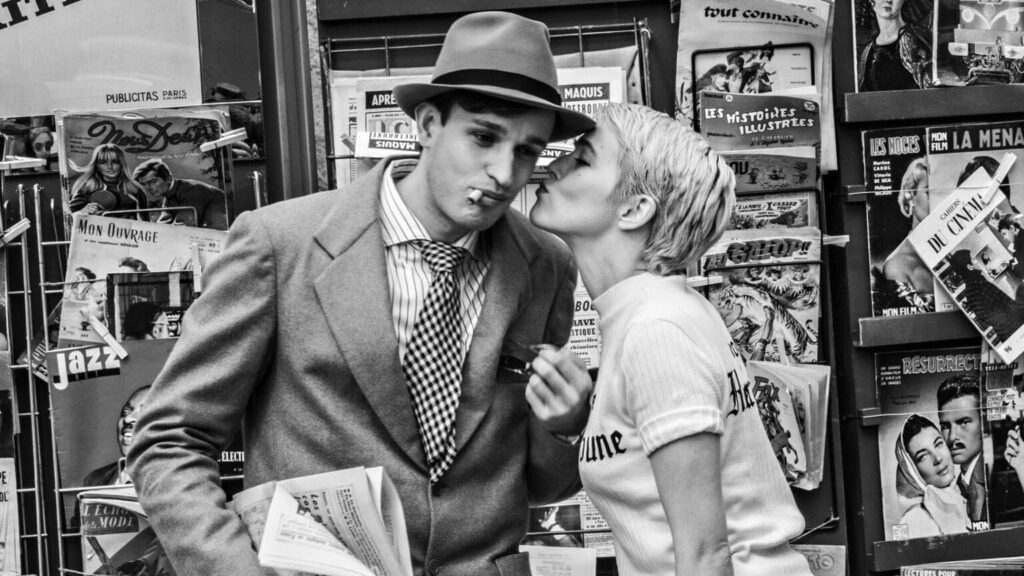
- “Sirât” by Oliver Laxe
Laxe has positively returned the aura to desert landscapes that have been long-lost since the ’80s. “Sirât” is one of the most exceptional films you will see this year, and grapples with the human role in the greater continuum of time and space in a way that is not at all trite nor underdeveloped. Exceptional visuals, exceptional performances, exceptional writing, exceptional direction and an exceptional score. The soundscape on this film is unlike any other.
- “Slauson Rec” by Leo Lewis O’Niel
An incredibly astute directorial debut from O’Niel. Observational documentary has, in many ways, become a lost art; seeing O’Neil’s take on documentary through an extremely contemporary and well-cut narrative without exerting much of his own literal voice in the film lent itself to a horrific and candid result.
- “Dossier 137 (Case 137)” Dominik Moll
Although there are elements of “Dossier 137” that don’t feel totally fresh in perspective, there is both an undeniable expertise in the craftsmanship of the film, as well as a unique angle on police violence through the European lens by platforming Euro-centric systemic issues. Might be this year’s “Anatomy of a Fall,” which is a good thing to be.
- “My Mom Jayne” by Mariska Hargitay
Hargitay strikes an emotional tone in the investigation into who her mom, Jayne Mansfield, was behind the pin-up persona. Hargitay’s film made me laugh and made me cry, and is a plainly well-rounded personal piece.
- “The Arch” by T’ang Shu Shuen
“The Arch” is a fascinating and meditative film which served as the first in line to the Hong Kong New Wave. It is a patient and visually striking film, but does have a tendency not to dedicate where it wants the perspective of the film to lie.
- “The Girls” by Sumitra Peries
There are few arthouse films out of Sri Lanka, but “The Girls” stands out as a prominent and dramatic entry into the nation’s artful output. The film is carried by exceptional composition and naturalistic performances from the primary cast, but is sometimes limited by budgetary constraints and pacing issues.
Editor Ashley Davis’ ratings:
- “Die, My Love” by Lynne Ramsay
A domestic, honest-to-God American Gothic steeped in Montana’s wide-open landscapes, with performances by Jennifer Lawrence and Sissy Spacek that call to mind some of Sam Shepard’s wildest women and a devastating John Prine needle-drop to cut right through it. Not perfect by any means, but tailor-made for me, and that’s what really matters.
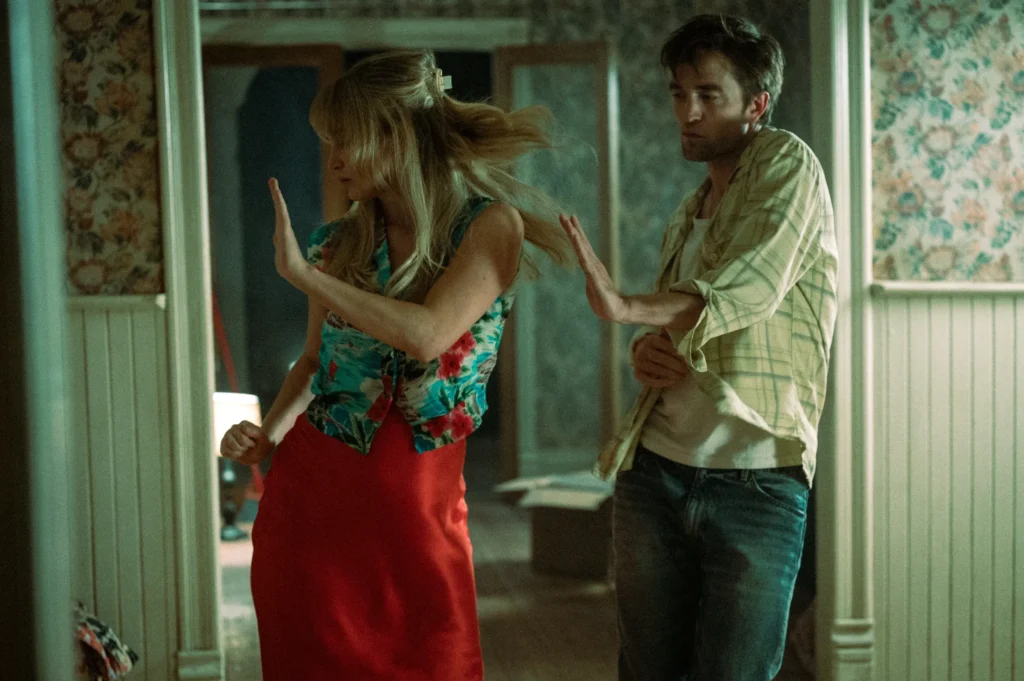
- “Nouvelle Vague (The New Wave)” by Richard Linklater
Technically flawless, effortlessly cool, and playful in all the right places. By filmmakers, for filmmakers. Could be my favorite, but I’ll put it at #2 in the interest of switching things up.
- “Eddington” by Ari Aster
Check out my full review of this one here!
- “Slauson Rec” by Leo Lewis O’Neil
The only one to make me cry. A debut feature documentary from a young director (17, at the time of filming) on how Shia LaBeouf’s free theatre troupe in Slauson, Los Angeles, turns abusive at LaBeouf’s own hand. A deeply uncomfortable watch intensified when considering Shia LaBeouf was in the same room.
- “The Phoenician Scheme” by Wes Anderson
Theatrical, maximalist and oh-so-funny. In what is likely his most ambitious project to date, Anderson and his wacky, star-studded ensemble have once again charmed all over me. The screenplay can get tangled at times and ultimately lacks the emotional core of his best work, but makes for a seamless addition to Anderson’s twee canon.
- “Urchin” by Harris Dickinson
My most anticipated of the lineup, yet left feeling totally neutral. Dickinson shows directorial promise and opens the critical conversation on systemic poverty in his native London, but the film’s dramatic structure suffers greatly under its contrived surrealistic elements. Fantastic score. Perfectly middle of the road on this one, perhaps would have been more convincing in Sundance or at TIFF.
- “La Ola (The Wave)” by Sebástian Lelio
A Chilean-set movie-musical based on true protests surrounding her university’s complacency in sexual violence, the film follows one student as she becomes the reluctant face of a movement all while trying to reckon with her own victimhood. Nothing wrong with it (save for one offensively trite fourth-wall break), but found little to latch onto outside of Julia’s internal and domestic conflicts. Will inevitably, and rather unfortunately, catch many “Emilia Perez” comparisons.
- “The Chronology of Water” by Kristen Stewart
Good to see you, Kim Gordon! Bloated and edgy, trading nuance for shock value at every turn. The monotony of Poots’ performance (fantastic) combined with the melodrama of the voiceover (not-so fantastic) has Kristen Stewart written all over it in a way that’s pretty endearing — kind of like when dogs resemble their owners. Except this dog is inbred with all the usual early-directorial tics (long live the 16mm/4:3 combo, I guess), uses the “fuck” word a little too much, and probably should’ve dropped the screenplay. Woof.
Head of Art & Photography Sandra Sheedy’s ratings:
- “The Plague” by Charlie Polinger
Grotesque, awkward, and thrilling in ways completely outside of the box. A masterful psychological thriller/body horror/coming-of-age film based on the parameters of tween boy reality, complete with a striking soundtrack, stunning performances and electric visuals. I am patiently waiting for the soundtrack to be released on Spotify.
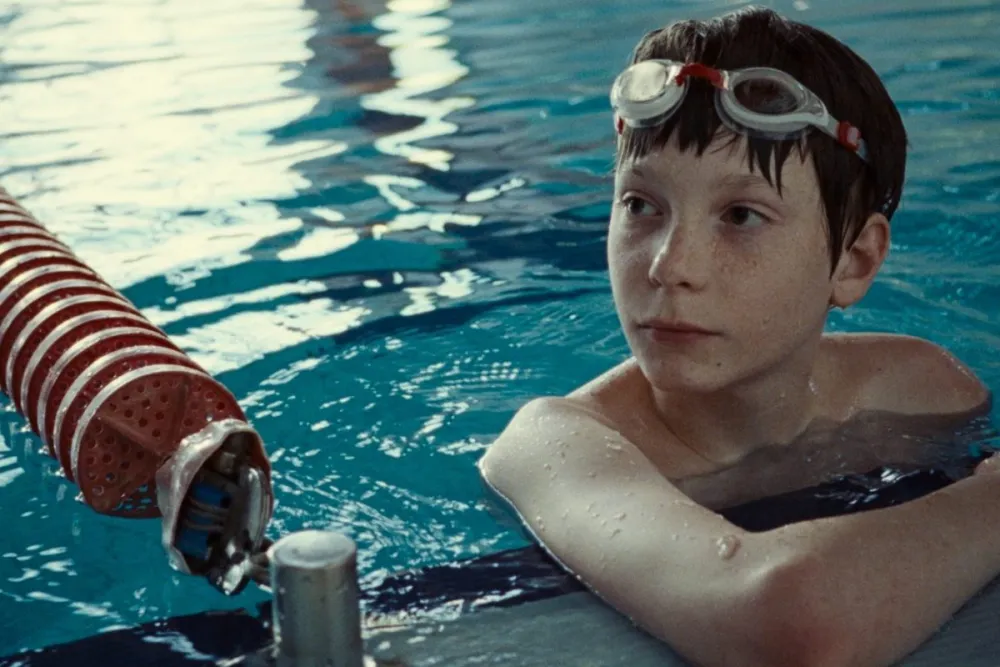
- “My Mom Jayne” by Mariska Hargitay
Going into this, I didn’t know anything about Jayne Mansfield or Mariska Hargitay. I left the theater with tear-stained skin, a love for a celebrity gone but not forgotten, and inspiration to create something out of love and curiosity. Beautifully made and so touching.
- “Eddington” by Ari Aster
Yes, yes, yes! Tastefully controversial. Ari Aster has done it again. This was one of the films I was looking forward to the most this year, and it did not disappoint. The best depiction of pandemic chaos I’ve seen on screen, heightened by Aster’s touch. The third act had me on the edge of my seat; I can’t wait for the general public to see this one.
- “La Misteriosa Mirada del Flamenco (The Mysterious Gaze of the Flamingo)” by Diego Céspedes
My first screening at Cannes alongside Hannah, and one I certainly won’t be forgetting! We watched this with French subtitles, so actions and visuals were what we had to rely on to follow the story. The film excelled in showcasing character dynamics and key plot points through action, not to mention the film was beautifully composed; I was taking mental notes of the film’s use of handheld framing and dramatic lighting. When I see this with English subtitles, it’s over for you all.
- “Sound of Falling” by Mascha Schlinski
This film’s use of silence and its redefinition of a “fall” had me thinking about it for the rest of the day after my screening. Such an important story about sexual trauma faced by young women, and it was fascinating to see how generations of girls can become interconnected simply through mirrored experiences in a shared space. Though a bit on the longer side, I greatly admire how meticulously intentional this was.
- “Urchin” by Harris Dickinson
Dissatisfying in all the right ways. A realistic portrayal of the systematic oppression faced by the homeless population. It was heartbreaking to witness life being breathed back into the main protagonist, just for it to be so easily wiped away again.
- “Arco” by Ugo Bienvenu
Sorry Hannah, but I really liked this film. It’s cute, it’s touching and I cried. Yes, the lore and some of the characters are a bit underdeveloped, but something about it just tugged at my heart strings! I think it was more nostalgic than anything, reminding me of animated films I adored as a kid.
- “The Phoenician Scheme” by Wes Anderson
Wes Anderson enthusiasts, this film is for you. However, his style simply doesn’t tickle my fancy. I can appreciate his elaborate theatrics and how much effort is put into his calculated camera movements and dialogue, but, frankly, I think that his filmography is all blending together in my mind.
- “The Chronology of Water” by Kristen Stewart
I went into it expecting one thing, and this film totally threw me for a loop. It attempted to be unique to an extreme degree, but began to blend into the “overly-artistic” film subgenre, where light leak overlays are tossed around seemingly without intention and jump cuts are every other second. I still love you, Kristen.
- “Tôi Yamanamino Hikari (A Pale View of Hills)” by Kei Ishikawa
While I greatly appreciate and resonate with the premise of an Asian daughter trying to tell her immigrant mother’s story, this was a bit too expository for my liking. There were points where the dialogue felt unnatural and stiff, and many scenes dragged unnecessarily long. I sobbed during a scene with cats that I shall not spoil . . . but it definitely tanked this film’s place on this list.
From all of us, it was a true privilege to watch these films and report live from Cannes Film Festival 2025 as part of The Independent’s inaugural team at the festival. And if we know one thing for certain, it’s that we will be back in the future.
For more updates on the 2025 Cannes Film Festival, follow The Independent’s live reporting from the festival grounds here.
Regions: Boston, Cannes, France, United States
